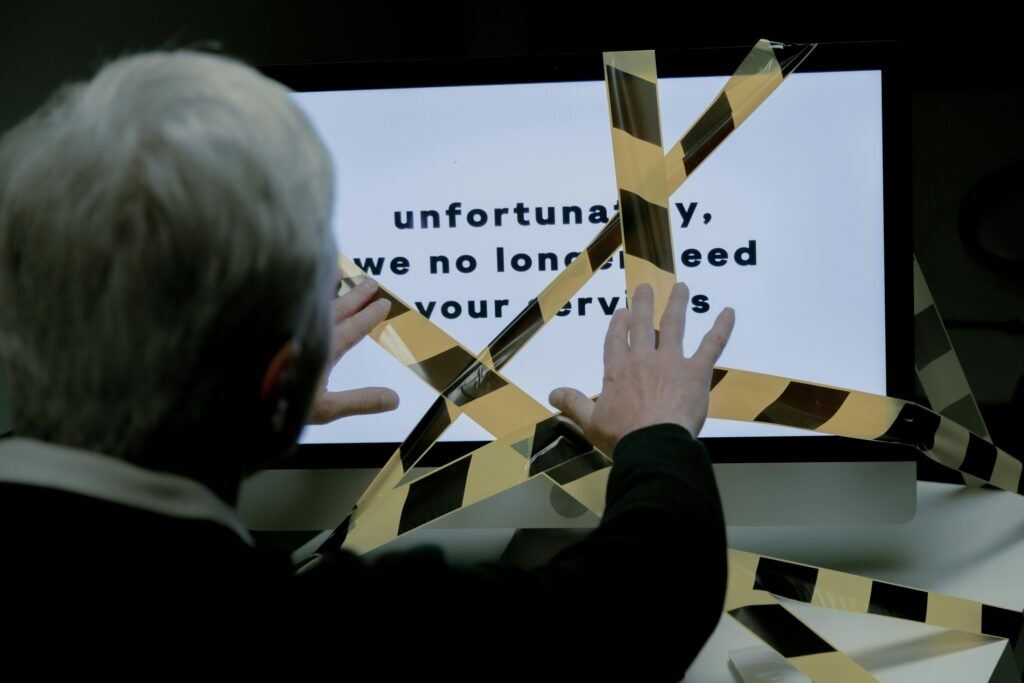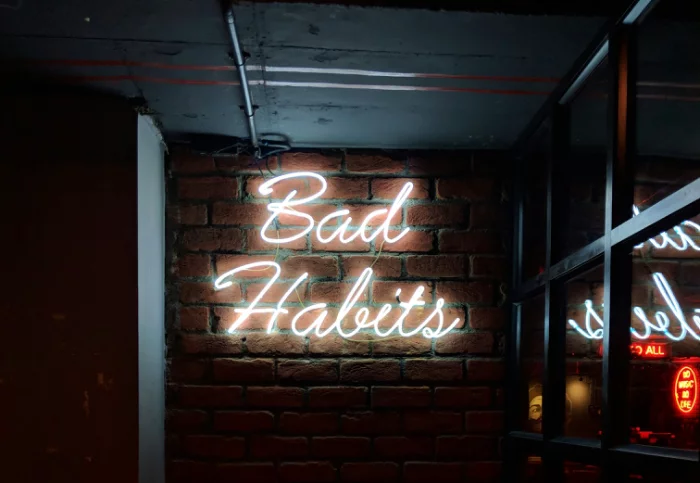How to Achieve Sustainable Weight Loss for Older Adults

Have you ever felt stuck in a cycle of quick fixes and fleeting results when it comes to sustainable weight loss? I sure did.
The idea of achieving sustainable weight loss—a goal without an expiration date—seemed out of reach, especially as I got older. But let me tell you right now, it’s ABSOLUTELY POSSIBLE! The key lies in changing our approach, moving away from drastic measures and towards habits that last.
I remember the moment it clicked for me, standing in front of the mirror, frustrated with diets that promised the world but left me empty. I knew something had to change.
Through small, consistent steps, focusing on balance rather than extremes, I began to see the weight not just fall off, but stay off.
This shift isn’t a number on the scale; it’s about feeling good in your own skin and maintaining that good feeling over time. Stick around and see how these changes can work for you too. It’s not magic; it’s a mindset.
Understanding the Obstacles
Stepping onto the path of healthy lifestyle habits sometimes feels like navigating a maze. I’ve been there, puzzled and unsure which way to turn. Understanding what bumps we might encounter on this weight loss journey can light the way and give you the confidence to keep going.
Let’s break down some of the key roadblocks:
Health and Medical Issues
At times, it feels like our bodies have their own agenda. Health issues like a slow metabolism, hormonal changes, or even certain medications can be sneaky barriers to weight loss. After all, not everyone operates at the speed of a hungry teenager’s metabolism!
- Slow Metabolism: As we age, our metabolism naturally slows down. It’s like our internal engine running a bit more slowly. This can make weight loss feel like pushing a boulder uphill.
- Hormonal Changes: Hormones play a significant role in weight management. For some, shifts in hormone levels, like during menopause, can make it harder to shed pounds.
- Medications: Certain medications, like those for depression or diabetes, can have side effects that affect weight. Consult your doctor to discuss possible alternatives if you suspect this might be a factor.
Psychological Barriers
It’s hard to talk about weight loss without addressing the mental game. The mind is a powerful player that sometimes whispers doubts and fears that can sideline your efforts.

Photo by cottonbro studio.
Emotional challenges can be like storm clouds over the road to sustainable weight loss:
- Loss of Motivation: Think of motivation like fuel—it needs regular replenishment. Stress, sadness, and life changes can sap your energy to stay committed.
- Fear of Failure: The fear that accompanies trying something new can be paralyzing. It’s like being on the starting line, but afraid to step forward lest you trip.
Lifestyle Factors
Our daily routines and the social circles we move in can dramatically affect our health goals. Sometimes, it feels like your habits and networks are determined to keep you stuck.
- Established Habits: Changing old habits is tough. If you’re used to an evening snack while watching TV, breaking that routine can be like trying to unlearn a dance you’ve performed 100 times.
- Social Influences: Friends and family can be both a support network and a source of temptation. Ever notice how social gatherings often revolve around food? It’s no wonder our goals waver when faced with tasty enticements.
Each of these obstacles can seem troublesome on its own. Trust me, it’s easy to feel overwhelmed. But understanding them—really getting to grips with what might hold us back—sets the stage for meaningful, sustainable change.
Practical and Emotional Tips for Success
Sustainable weight loss is not just counting calories or hitting the gym. It’s changing how we think and feel about our bodies and our habits. Let’s look at some practical and emotional tips that have assisted me on my journey to a healthier life.
Embracing Mindset Shifts
I’ve found that the way we think plays a huge role in our success. It’s important to focus on emotional wellness and keeping motivation high. It feels tempting to give up, but changing how you think can really help. Here are some strategies that can work for you:
- Celebrate Small Wins: Rejoice in every little progress, whether it’s choosing a salad over fries or walking an extra mile. These victories are the building blocks of bigger success.
- Visualize Success: Picture yourself at your healthiest, feeling strong and confident. This image can serve as a beacon, guiding you through tough times.
- Positive Self-talk: Replace “I can’t” with “I’m learning” and “I’ll never” with “I will.” Words have power, and positive self-talk can lift your mood and boost motivation.
Building Support Systems
I’ve learned that we don’t have to go through this alone. Support from others can be a game-changer. Involving family and friends or joining a community can make the journey more enjoyable and less discouraging.
- Family and Friends: Share your goals with those close to you. They can provide encouragement, accountability, and a little celebratory dance when you reach milestones.
- Support Groups: Whether in-person or online, these communities offer shared experiences, advice, and a sense of belonging.
- Fitness Buddies: Find a workout partner. Having someone beside you can make exercising feel more like a fun hangout session than a chore. When you’re having fun, you don’t even realize that you’re exercising.
Sustainable Diet Changes
There’s a big difference between dieting and healthy eating. I was raised in the southern United States, where dieting in a southern town seems like an oxymoron. 😂 There is always an alternative when it comes to food choices and healthier cooking methods. Check out an article I wrote that covers the topic of eating healthy in a southern town.
Diets often feel restrictive and temporary, but changing your eating habits is a long-term commitment to nourishing your body with the right foods. Here’s what to do:
- Focus on Nutrient-Rich Foods: Think of colorful fruits and veggies, whole grains, and lean proteins. They support energy levels and wellness.
- Listen to Your Body: Pay attention to hunger signals rather than following a strict schedule. Trusting your body helps develop a healthier relationship with food.
- Ditch the Extremes: Avoid diets that cut out entire food groups or severely limit calories. Moderation is key.

Integrating Exercise at Any Age
Exercise doesn’t have to be strenuous or boring. It’s about moving your body in ways that feel good. Regular physical activity benefits both physical and mental health.
- Start Small: Begin with short, achievable workout routines. Maybe a 10-minute walk or some gentle stretches.
- Find What You Love: Whether it’s dancing, cycling, swimming, or yoga, engage in activities that bring you joy.
- Mind the Mind: Exercise is not only about physical fitness; it’s great for mental health too. It can reduce stress, improve mood, and increase energy levels.
Through these practical and emotional tips, I’ve found my path to sustainable weight loss. It’s a journey that requires persistence, positivity, and a bit of self-love. Keep pushing forward, and you’ll find your groove.
Addressing Common Weight Loss Myths
Many of us believe myths about weight loss without even realizing it. These myths can keep you from reaching your goals, especially when it comes to sustainable weight loss. Let’s crush some of these myths and get you back on track.

Photo by Moe Magners
Myth: It’s Too Late to Start
Have you ever heard someone say it’s too late to start losing weight? Maybe you’ve thought that yourself. I know have. The truth is, age doesn’t dictate our ability to make healthy changes—it’s our mindset that counts.
I’ve met people in their 50s, 60s, and even 70s who started their journey to better health and succeeded. Take, for instance, my neighbor Nancy, who began walking half a mile every day at 65 and now, three years later, hikes every weekend.
- Don’t let age be the anchor that holds you back from setting sail.
- If others can start late and succeed, so can you!
Myth: Exercise Must Be Intense
The myth that getting fit requires super intense workouts at the gym every day is so widespread it’s almost legendary! Of course, those kinds of workouts are great for some, but they aren’t the only route to success.
When I first started, I believed that too, and it just made exercise feel impossible. But then, I found out about yoga, swimming, and even simple brisk walking. Consider these low-impact options:
- Yoga: Not only is it great for flexibility, but it also relieves stress.
- Swimming: It’s a full-body workout without harsh impact on the joints.
- Walking: A powerful way to get moving; even a 30-minute walk has lots to offer.
Sustainable weight loss doesn’t come from burning out or feeling overwhelmed. It’s about finding what fits into your life, not what completely turns it upside down. Think of it as a musical playlist—some days rock out and burn all the energy, but other times, a soft melody does the job just right.
Remember, life’s not a sprint; it’s a marathon. Let’s keep pacing ourselves for the long haul.
Encouraging Long-term Change
When it comes to achieving and managing a long-term weight loss solution, it’s all about embracing the slow and steady journey. Quick fixes may seem tempting, but they rarely offer lasting results. The trick is to shift our focus to long-term lifestyle changes that not only transform our bodies but also our mindsets. Here are some strategies that help maintain motivation and adapt to life’s ups and downs.
Celebrating Small Wins
Focusing on what’s in front of you is an easier way to manage your weight loss goals. It’s less intimidating than stacking up workout to-do-lists that make you anxious. That’s what small wins are—steps along the path of your weight loss adventure. Each little victory fuels your excitement and propels you forward.
Why Small Wins Matter
- Boosts Motivation: Each small achievement triggers a dopamine release in the brain, leading to feelings of satisfaction and encouragement.
- Reinforces Positive Habits: Celebrating small milestones helps cement new behaviors, making it easier to adopt them permanently.
- Helps Track Progress: These wins serve as a visual representation of how far you’ve come.
How to Celebrate Them
- Journaling: Write down your progress and reflect on how it makes you feel.
- Non-food Treats: Reward yourself with something that brings you joy—like a new book or a justice league shirt.
- Sharing: Tell a friend or loved one about your achievement and celebrate together!
Taking the time to honor these moments turns a daunting task into an exciting adventure.
Adapting to Setbacks
We’ve all hit those frustrating plateaus or faced setbacks. They can feel like uninvited guests crashing the party of progress. But remember, they are only part of the process—not the end of it. It’s alright to give yourself a little slack.
How to Navigate Setbacks
- Recognize Natural Fluctuations: Understand that your weight will naturally fluctuate due to various factors like water retention.
- Reassess Your Goals: It might be time to reevaluate and adjust your strategy. Sometimes, we need smaller goals to regain momentum.
- Stay Positive: Self-compassion is key. Speak to yourself like you would your best friend—with encouragement and understanding.
A setback is often an opportunity in disguise. It’s the nudge you need to reexamine your path and ensure it’s aligned with what is truly sustainable for you.
Embrace the bumps and celebrate every small step you take. Sustainable weight loss is not a sprint but a heartfelt quest—one that lasts a lifetime. Together, we can shift our perspective from being number-focused to celebrating a thriving, healthy lifestyle.

FAQs about Sustainable Weight Loss for Older Adults
Navigating sustainable weight loss in our later years comes with its unique challenges and questions. It’s a journey that involves understanding one’s body, finding safe and effective ways to stay active, and most importantly, staying motivated. I’ve collated some frequently asked questions to help guide you on this path.

What are common medical conditions affecting weight loss in older adults?
As we age, our bodies undergo changes that can make weight loss more challenging. Common medical conditions that might affect weight include:
- Hypothyroidism: The thyroid regulates metabolism, and when it’s not working as it should, it can slow down weight loss.
- Diabetes: Managing blood sugar levels can be tough, which might influence how our bodies store or burn fat.
- Heart conditions: Certain medications might cause fatigue, making it harder to stay active.
- Arthritis: Joint pain can limit physical activity, leading to weight gain.
If you’re facing any of these conditions, chatting with your doctor is a good first step.
How can older adults stay motivated throughout their weight loss journey?
I know staying motivated can be one of the hardest parts. Here’s what worked for me:
- Set small goals: Celebrate little victories to stay inspired.
- Track progress: Keeping a journal helped me see how far I’ve come.
- Find a buddy: Sharing the journey with someone can make a big difference.
- Reward yourself: Treat yourself with something non-food related when you hit a milestone.
Reflect on what has motivated you in the past and try applying that to your wellness journey.
Are there specific diets recommended for sustainable weight loss in older adults?
The key to a good diet is one that is balanced and enjoyable. Here are some general tips:
- Mediterranean Diet: Rich in fruits, vegetables, and healthy fats.
- Low-Carb Diet: Focuses on reducing carbohydrates while increasing protein intake.
- DASH Diet: Helps manage hypertension while promoting weight loss.
Honestly, the best diet is one you can stick to, which makes sense for your lifestyle and tastes. Always consult with healthcare professionals before making significant changes.
What types of exercises are safe and effective for older adults?
Exercise doesn’t have to be strenuous to be effective. Safe options include:
- Walking: Simple, low impact, and can be done anywhere.
- Swimming: Great for joints and offers a full-body workout.
- Yoga: Improves flexibility and reduces stress.
- Strength Training: Builds muscle and helps maintain bone health.
Explore what feels best for your body and consider working with a physical therapist for guidance.
Conclusion
Achieving sustainable weight loss isn’t about fleeting diets or unrealistic goals—it’s about embracing a lifestyle change that prioritizes health and happiness. Building good habits, from balanced eating to regular activity, forms the foundation. Remember, it’s the small, consistent actions that compound over time to create lasting change.
Believing in myself and carrying on through setbacks has been my anchor. We all stray from our path sometimes, but refocusing is key. Our mindset shapes our journey; let positivity guide you.
Next step: set one small, achievable goal today. Whether it’s a 10-minute walk or swapping a snack for something healthier, take that step. The power is all yours so GRAB IT!
What’s one change that you find most challenging when it comes to weight loss? Let’s talk about it; share your thoughts, and let’s explore new solutions together. Send us an email or comment below. Every effort counts. Keep pushing forward, and remember—real change is possible, and it’s worth the trip.



